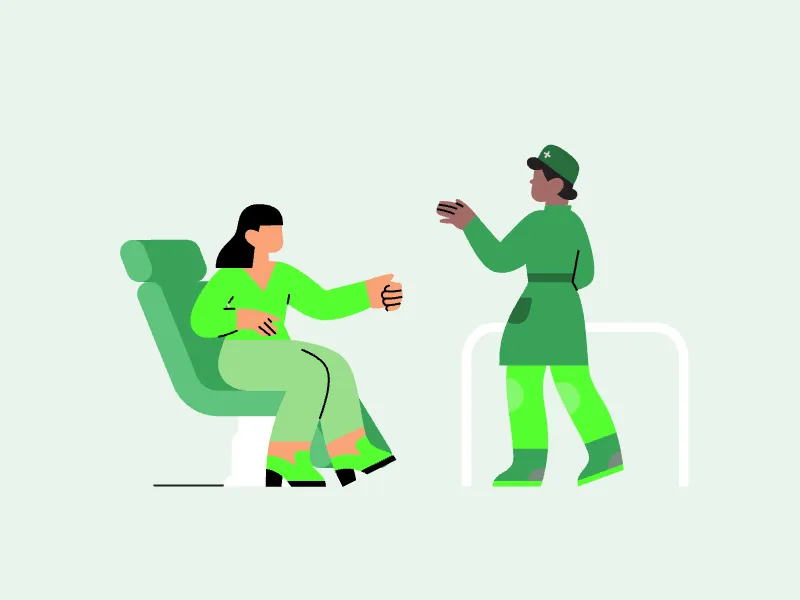You might be interested in
What the research says about OCD and binge eating
Research indicates that it is common for people to be diagnosed with both an eating disorder and OCD at the same time. Among patients diagnosed with an eating disorder, an estimated 15% also had a concurrent OCD diagnosis.4 Additionally, among patients diagnosed with OCD, an estimated 7.2% are also diagnosed with BED.5
About 15% of those with an eating disorder also have OCD. Learn about our remote treatment program that helps you to recover from an eating disorder from home.
Learn more A 2019 study found that women diagnosed with OCD may be more likely to engage in disordered eating behaviors, increasing their risk of developing an eating disorder. (6)
Furthermore, a 2013 study found that 73.8% of patients with BED had at least one additional lifetime psychiatric disorder, and 43.1% had at least one current psychiatric disorder. Mood and anxiety disorders were the most common coexisting disorders, but the study found that 2.2% of those with OCD had co-occurring BED.7 This study also revealed that BED patients with a comorbid psychiatric disorder also had significantly higher levels of current eating disorder psychopathology, as well as lower self-esteem, compared with BED patients with no history of psychiatric disorders (concurrent or lifetime).7
How to treat OCD and binge eating disorder
The psychological links between OCD and binge eating disorder can allow treatment to be tailored for both disorders.8 The most common treatment modalities, which may be adapted for both disorders, are cognitive behavioral therapy (CBT), interpersonal psychotherapy (IPT), and dialectical behavior therapy (DBT).9,10,11
Cognitive behavioral therapy (CBT)
Challenges automatic negative thoughts that drive compulsive behaviors in both OCD and BED. For patients with BED, CBT challenges patients’ negative views of themselves, which may drive binge-eating episodes. It also encourages setting goals to establish healthy eating patterns.9
Interpersonal psychotherapy (IPT)
People who suffer from BED and OCD often feel isolated by their symptoms, and this isolation further reinforces negative behaviors. IPT helps patients to manage challenges in interpersonal relationships without binge eating or other compulsive behaviors.9
Dialectical behavior therapy (DBT)
Focuses on regulating difficult emotional experiences. People with OCD and binge eating disorder symptoms often use binge-eating or compulsive behaviors to cope with difficult emotions. DBT helps people to focus on mindfulness, and to better regulate emotions while increasing tolerance and resilience. This therapy helps people with OCD and BED to develop healthier coping mechanisms.9
It is important for people who may have or may be treating OCD symptoms and binge eating disorder to recognize when both disorders co-occur. Treating both disorders may improve the likelihood of recovery, by disrupting the connections between the disorders.12
Remote treatment is available
If you or someone you know is struggling with BED and OCD, help is available. Within Health offers individualized eating disorder treatment plans delivered with compassion by an experienced multidisciplinary team.
Call (866) 293-0041 


















%2520THUMB.webp)
















